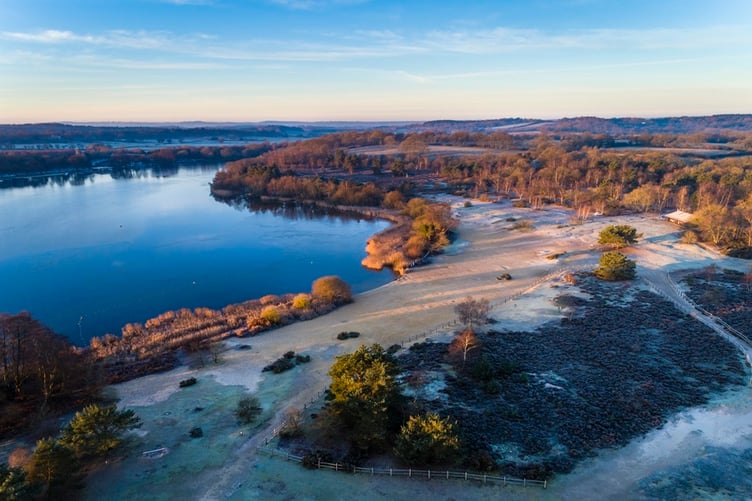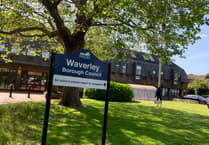Fears of “irreversible damage” to Surrey’s countryside have prompted calls to change a new planning bill currently going through parliament.
Surrey County Council members have unanimously agreed to call for the central government to change a “deeply damaging” planning bill.
Councillors voted in favour of an amended Green Party motion, highlighting serious concerns about the environmental implications of the potential legislation at a full council meeting on Tuesday (July 8).
The Planning and Infrastructure Bill currently going through parliament aims to streamline the planning system to speed up the delivery of new homes and big infrastructure projects.
But part of the bill includes the removal of some environmental red tape which the government argues is gridlocking the process.
Councillor Jonathan Essex (Green Party/ Redhill East) put forward the motion, stating: “If passed, this parliamentary bill will cause tragic, irretrievable and avoidable damage to Surrey’s countryside.
“We must not let this Bill dismantle decades of progress in nature protection, including removing key principles of environmental governance from the planning system.”
Surrey cabinet member for the Environment, Cllr Marisa Heath (Conservative/ Englefield Green) supported the motion. She said the council is in favour of building new homes but “not to the detriment of the existing environment and residents”.
Cllr Heath praised Surrey MPs who had already taken a stand and voted against the bill in parliament but hinted there was still more work to do.
Key concerns raised by councillors focused on part three of the bill which outlines a mechanism that would allow developers to bypass current environmental rules by putting money into a nature restoration fund.
But the fund could be used at a later date to create environmental improvement elsewhere in Surrey or beyond, according to Cllr Heath.
She stressed that once the fee is paid, concreting over green spaces can go ahead with the developer measuring the potential harm to the site during the planning process, how irreversible or long-lasting it may be.
Cllr Essex’s motion demanded the government “sufficiently amend” the relevant part of the bill. He said: “If Surrey’s beautiful countryside is to be protected Section 3 of this Bill must be scrapped.”
The government has said the bill does not weaken environmental protections and will actually improve environmental outcomes and nature recovery.
Councillors from across the political divide came out against the possibility of developers side-stepping key ecological safeguards to drive through house building. They claimed it would neither bring in the finances needed nor deliver the environmental healing nature needed.
Cllr Essex claimed the bill “waters down habitat protections” to sites of specific scientific interest (SSSIs) and other protected areas in Surrey like Colony Bog and Bagshot Heath, Brookwood Heath and Chobham Common.
He added the new rules will chip away protection granted to individual species such as bats, newts, wild birds and water voles.
Rather than green interests slowing down growth, Cllr Essex argued planning delays are driven by under-resourced planning authorities, infrastructure bottlenecks, and industry-led viability constraints.
He said: “I am not sure how Rachel Reeves was able to keep a straight face when blaming newts for the failure to build homes when a third of homes given planning permission in the last decade, that is 1.4 million, were not built.”
Surrey Wildlife Trust has slammed the bill in its current form as ‘a licence to kill nature’ as well as the Office for Environmental Protection claiming it waters down the existing laws designed to protect the environment.
A statement from the government read: “Crucially, the Bill will also ensure that vital protections for the environment remain in place and through a more strategic approach we can deliver more for nature and not less.
“Current rules in the National Planning Policy Framework are clear that development resulting in the loss or deterioration or irreplaceable habitats, including ancient woodland and ancient or veteran trees, should be refused. This will not change through the Planning and Infrastructure Bill.”





Comments
This article has no comments yet. Be the first to leave a comment.